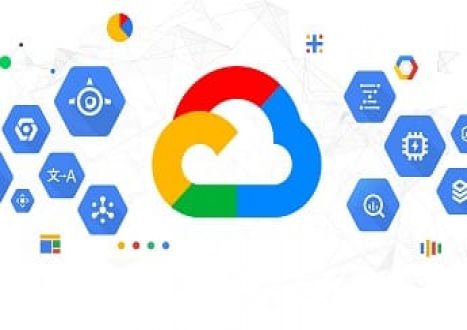- Home
- Video Courses
- Certifications
- Associate Cloud Engineer Dumps


Associate Cloud Engineer Certification Video Training Course
Associate Cloud Engineer Certification Video Training Course includes 234 Lectures which proven in-depth knowledge on all key concepts of the exam. Pass your exam easily and learn everything you need with our Associate Cloud Engineer Certification Training Video Course.
Curriculum for Google Associate Cloud Engineer Certification Video Training Course

























Associate Cloud Engineer Certification Video Training Course Info:
The Complete Course from ExamCollection industry leading experts to help you prepare and provides the full 360 solution for self prep including Associate Cloud Engineer Certification Video Training Course, Practice Test Questions and Answers, Study Guide & Exam Dumps.
GCP Associate Cloud Engineer Certification – Google Cloud
Course Overview
The Google Cloud Associate Cloud Engineer course is designed to provide learners with the foundational knowledge and practical skills necessary to deploy, manage, and operate applications on the Google Cloud Platform. This course serves as an entry point for individuals aiming to validate their expertise in the essential components of Google Cloud and gain the certification that proves their proficiency. The primary objective of this course is to equip learners with hands-on experience in using the core services of Google Cloud, including computing, storage, networking, security, and monitoring, while developing an understanding of cloud architecture principles and best practices.
This course begins with an introduction to the Google Cloud Platform, providing context about why organizations adopt cloud technologies, the advantages of cloud computing, and the various services offered by Google Cloud. Learners will explore the cloud ecosystem, focusing on how GCP services integrate to support enterprise workloads. The course emphasizes practical implementation, ensuring that students gain experience working in a live cloud environment rather than solely through theoretical knowledge.
The Associate Cloud Engineer certification validates the ability to perform essential tasks such as setting up cloud projects, managing accounts, deploying applications, configuring networks, and ensuring operational reliability. By completing this course, learners not only prepare for the certification exam but also develop competencies that can be applied in real-world scenarios, making them valuable contributors to cloud-enabled organizations. The course is suitable for IT professionals, developers, systems administrators, and anyone interested in beginning a career in cloud computing.
Throughout the course, learners will engage in scenario-based exercises that mirror real organizational challenges. These scenarios reinforce concepts and provide practical context, enabling learners to build confidence in deploying, managing, and scaling applications on GCP. A strong emphasis is placed on understanding the architecture of cloud applications and services, as well as the operational responsibilities of a cloud engineer.
Modules
Introduction to Google Cloud Platform
The introductory module establishes a foundation for understanding cloud computing concepts and the unique features of Google Cloud Platform. Students begin by exploring the fundamentals of cloud architecture, including scalability, availability, reliability, and security. This module covers the global infrastructure of Google Cloud, such as regions, zones, and edge locations, and how they influence the deployment of applications. Learners will gain insight into the differences between various cloud service models, including Infrastructure as a Service, Platform as a Service, and Software as a Service, as well as how Google Cloud delivers these models.
This module also introduces the tools and resources that learners will use throughout the course. Students will become familiar with the Google Cloud Console, the command-line interface (gcloud), and Cloud Shell. Practical exercises will guide learners through account creation, project setup, and the navigation of key services. By the end of this module, learners will have a comprehensive understanding of the Google Cloud environment and the core principles that underpin cloud-based solutions.
Core Google Cloud Services
This module delves into the essential services that form the backbone of Google Cloud. Students will learn about computing options such as Google Compute Engine, which provides virtual machines, and Google Kubernetes Engine, which facilitates containerized application management. Cloud Functions and App Engine are introduced to explain serverless computing options. Learners will explore the differences between these computing services, including use cases, pricing models, and operational considerations.
Storage services are a major focus in this module. Students will gain hands-on experience with Cloud Storage, Cloud SQL, Cloud Spanner, and Firestore. Emphasis is placed on understanding the appropriate scenarios for each storage option, managing data lifecycles, and ensuring data durability and availability. Networking concepts, such as Virtual Private Cloud (VPC), subnets, firewalls, and Cloud Load Balancing, are covered to ensure that learners can design robust and secure network architectures.
Security services form another critical component of this module. Learners will explore Identity and Access Management (IAM), encryption, and security best practices, emphasizing the principle of least privilege. The module also introduces logging, monitoring, and alerting through Stackdriver to maintain operational reliability. By the end of this module, learners will have a holistic understanding of core Google Cloud services and how they interconnect to support enterprise applications.
Managing Google Cloud Projects
Managing projects in Google Cloud is a central responsibility of a cloud engineer. This module covers the lifecycle of projects, including creation, organization, billing setup, and monitoring usage. Students will learn how to manage IAM roles and permissions effectively, ensuring that teams have the correct level of access to resources.
This module also addresses resource organization strategies, such as folders, labels, and quotas, which are essential for maintaining control over large-scale cloud environments. Learners will explore cost management tools to optimize cloud spending and gain insights into resource usage patterns. Hands-on exercises provide practical experience in configuring projects, setting policies, and maintaining compliance with organizational standards.
By focusing on project management, learners gain the ability to plan, deploy, and monitor cloud environments efficiently. This module equips students with the skills necessary to ensure operational excellence, cost control, and compliance, which are essential responsibilities for an Associate Cloud Engineer.
Deploying and Operating Cloud Solutions
In this module, learners focus on deploying and managing applications in Google Cloud. Topics include configuring virtual machines, deploying containerized applications, managing serverless functions, and integrating storage and networking services. The module emphasizes automation and operational efficiency, with guidance on using Cloud Deployment Manager, scripts, and templates to streamline deployments.
Operational monitoring is covered in depth, including logging, metrics, tracing, and alerting. Learners gain hands-on experience configuring Stackdriver to monitor application performance, detect anomalies, and troubleshoot issues. High availability and disaster recovery strategies are also introduced to ensure that applications remain reliable under varying conditions.
This module prepares learners to handle day-to-day operational responsibilities, including scaling applications, managing updates, and maintaining system security. By combining deployment skills with operational insights, students develop a comprehensive understanding of cloud solution management, enabling them to contribute effectively to any Google Cloud project.
Preparing for the Certification Exam
The module includes simulated exam exercises designed to familiarize learners with the format, style, and difficulty of questions they will encounter. Emphasis is placed on critical thinking, problem-solving, and applying knowledge to real-world scenarios. By completing this module, learners gain the confidence and competence necessary to pass the certification exam and demonstrate their expertise as a Google Cloud Associate Cloud Engineer.
Technical Knowledge Requirements
The Google Cloud Associate Cloud Engineer course requires learners to have a foundational understanding of core IT concepts. While it is accessible to beginners, familiarity with operating systems, networking, and basic computing principles significantly enhances the learning experience. Students are expected to understand how virtual machines function, the basics of file systems, and process management. A working knowledge of the command-line interface, including executing scripts and commands, is essential, as many GCP operations rely on the gcloud CLI or Cloud Shell.
Networking knowledge is also critical. Learners should understand IP addressing, subnets, routing, firewalls, and VPNs. These concepts underpin the configuration of Google Cloud networks and the secure deployment of applications. Understanding client-server relationships, data flows, and network topologies helps learners make informed decisions when designing and troubleshooting cloud infrastructure.
Familiarity with software development principles enhances the course experience. Learners are not required to be professional developers, but knowledge of version control, basic programming, and application deployment processes allows them to better understand the integration of applications with GCP services. Concepts such as containerization, APIs, and serverless functions are introduced, and prior exposure facilitates comprehension of how applications are packaged and executed in cloud environments.
Access to Google Cloud Platform
A fundamental requirement of this course is access to a Google Cloud account. The training emphasizes hands-on learning through a live environment. Learners perform practical exercises that include creating projects, deploying virtual machines, configuring storage, and setting up networks. The Google Cloud free tier provides sufficient resources for most exercises, allowing students to practice without incurring significant costs.
Access to GCP ensures that learners can experiment with real services, observe the outcomes of configurations, and troubleshoot issues in a safe environment. Practical experience is essential for understanding the nuances of cloud operations, as theoretical knowledge alone is insufficient to pass the certification exam or perform effectively in professional roles.
Security and Compliance Knowledge
Understanding security principles is a crucial requirement. Learners should be familiar with identity management, access control, encryption, and secure network configurations. This knowledge ensures that students can implement best practices when configuring IAM roles, encryption keys, and firewall rules. Security awareness allows learners to maintain the integrity, confidentiality, and availability of cloud resources, which is essential for professional responsibilities and certification objectives.
Compliance knowledge is also beneficial. Learners who understand regulatory requirements, data protection standards, and governance practices can implement policies that align with organizational and legal obligations. While the course introduces compliance concepts, prior exposure helps learners contextualize and apply best practices more effectively.
Analytical and Problem-Solving Skills
Cloud engineering requires more than technical knowledge; it demands analytical thinking and problem-solving abilities. Learners are expected to approach challenges methodically, analyze system behaviors, and implement effective solutions. Exercises are designed to simulate real-world issues, such as performance bottlenecks, resource misconfigurations, and security alerts.
By developing problem-solving skills, learners gain the confidence to troubleshoot operational problems, optimize deployments, and maintain high availability and reliability. The course reinforces these abilities through hands-on labs, scenario-based exercises, and guided practice that mirror professional cloud engineering responsibilities.
Time Commitment and Learning Motivation
The course requires dedication and consistent engagement. Students must invest time in studying theoretical content, performing hands-on exercises, and reviewing outcomes. The Associate Cloud Engineer certification exam assesses both knowledge and practical skills, making regular practice essential for success.
Motivated learners who allocate sufficient time to labs, scenarios, and review sessions are more likely to achieve mastery. The course’s structure encourages learners to balance theory and practice, fostering a habit of continual learning and improvement that extends beyond the classroom.
Familiarity with Cloud Concepts
Although the course focuses on Google Cloud, familiarity with general cloud principles enhances understanding. Concepts such as scalability, elasticity, high availability, and multi-tenancy provide context for GCP services. Learners who have explored cloud services from other providers, such as AWS or Azure, can compare architectures, features, and best practices, deepening their comprehension.
Understanding cloud-native design, including microservices, containerization, and serverless models, allows learners to appreciate how GCP services support modern application development and deployment. Exposure to cloud concepts helps learners grasp the rationale behind design decisions, service configurations, and operational strategies.
Professional Experience Benefits
While not mandatory, prior professional experience in IT operations, system administration, or network management is highly advantageous. Experience with server management, application deployment, and network configuration aligns closely with the responsibilities of a cloud engineer. Learners with this background can quickly relate course concepts to real-world scenarios, making exercises more meaningful and impactful.
Familiarity with enterprise IT workflows, service-level agreements, and operational responsibilities prepares learners to navigate GCP in a professional context. It also enhances their ability to troubleshoot issues, optimize resources, and implement best practices effectively.
Supplementary Learning Resources
Learners are encouraged to utilize additional resources to complement the course. Google Cloud documentation, online tutorials, practice exams, and community forums provide alternative explanations, examples, and problem-solving approaches. Engaging with these resources reinforces knowledge, fills gaps, and provides exposure to practical scenarios beyond the structured curriculum.
Accessing supplementary materials ensures learners remain updated with the latest GCP services, features, and best practices. It also allows them to explore advanced topics or specific areas of interest, creating a more personalized learning experience.
Soft Skills Requirements
Effective communication, collaboration, and documentation skills are valuable for cloud engineers. Working in cloud environments often involves collaborating with developers, IT administrators, and business stakeholders. Being able to explain technical concepts clearly, document configurations, and share insights enhances project effectiveness and contributes to team success.
Soft skills also include adaptability and resilience. Cloud environments are dynamic, and configurations may not always behave as expected. Learners must be able to adjust, troubleshoot, and communicate solutions effectively, ensuring that operational goals are met.
Cost Awareness and Budgeting
Understanding cloud costs and resource management is a critical requirement. Students should be aware of how usage impacts billing, how to monitor expenses, and how to optimize resources to balance cost and performance. Learning how to implement budgets, alerts, and resource efficiency measures ensures that learners can deploy solutions responsibly and sustainably.
This knowledge is essential both for the certification exam and for professional practice. Cost-aware engineers contribute to organizational efficiency, prevent overspending, and ensure that cloud solutions are financially viable.
Persistence, Curiosity, and Lifelong Learning
Finally, learners must possess persistence and curiosity. The course introduces many new concepts, tools, and services that may initially seem complex. A willingness to experiment, explore, and seek understanding beyond immediate exercises ensures that learners build deep, lasting expertise.
Curiosity drives learners to investigate services, try different configurations, and explore innovative solutions. Developing a habit of continuous learning allows cloud engineers to stay current with evolving technologies, adapt to new challenges, and maintain relevance in a rapidly changing industry.
Course Description
The Google Cloud Associate Cloud Engineer course is a foundational program designed to provide learners with both theoretical knowledge and practical skills needed to manage Google Cloud Platform environments. The course focuses on the essential services, tools, and operational practices required to deploy, monitor, and maintain cloud applications efficiently. Students gain hands-on experience working with Google Cloud, preparing them for real-world scenarios and the Associate Cloud Engineer certification exam.
Overview of Learning Objectives
The primary objective of the course is to ensure learners understand the architecture of Google Cloud and can perform core operational tasks. Learners develop the ability to create and manage projects, configure virtual machines, deploy containerized and serverless applications, and implement storage solutions. They also learn to monitor system performance, manage user access, and troubleshoot operational issues. By the end of the course, students are equipped with both the knowledge and the confidence to perform cloud engineering tasks professionally.
Emphasis on Hands-On Experience
A distinctive feature of this course is its focus on practical, hands-on learning. Rather than relying solely on theoretical knowledge, learners actively engage with Google Cloud resources. They perform exercises such as deploying Compute Engine instances, configuring Cloud Storage buckets, setting up networks, and applying security policies. This immersive approach reinforces concepts, builds operational skills, and helps learners internalize best practices in cloud management.
Core Topics Covered
The course covers a wide array of topics essential to Google Cloud engineering. Computing services are explored in detail, including virtual machines, Kubernetes clusters, App Engine applications, and Cloud Functions. Students learn when to use each service, understanding the trade-offs in cost, scalability, and operational complexity. Storage and database services are also a major focus, with instruction on Cloud Storage, Cloud SQL, Cloud Spanner, and Firestore.
Networking and security are integral components of the curriculum. Students configure Virtual Private Clouds, subnets, firewall rules, load balancers, and identity access policies. They learn to apply encryption and security best practices to protect resources and maintain compliance. Monitoring, logging, and alerting are taught through Stackdriver, allowing students to maintain operational reliability and respond proactively to issues.
Deployment and Operational Management
The course emphasizes not only deployment but also the ongoing operation of cloud applications. Learners practice automating deployments using Cloud Deployment Manager and scripting with the gcloud CLI. They monitor applications, analyze logs, troubleshoot incidents, and ensure high availability. Disaster recovery, backup strategies, and scaling practices are integrated into lessons to prepare learners for professional responsibilities.
Alignment with Certification Exam
The curriculum aligns closely with the Google Cloud Associate Cloud Engineer certification exam. Each module maps to the exam objectives, ensuring learners are well-prepared to demonstrate knowledge and practical competence. Scenario-based exercises simulate real-world situations, requiring students to apply concepts to solve operational challenges. This exam-focused approach ensures that learners are confident and competent when taking the certification test.
Integration of Best Practices
The course emphasizes best practices in cloud architecture, deployment, and operations. Students learn to optimize resources, manage costs, and implement scalable and resilient solutions. Lessons highlight industry-standard practices, including automation, monitoring, security, and operational efficiency. By integrating these best practices, learners develop the ability to deploy applications that are reliable, secure, and cost-effective.
Real-World Scenarios and Case Studies
To enhance learning, the course incorporates real-world scenarios and case studies. These examples demonstrate how organizations deploy and manage applications in Google Cloud, the challenges they face, and the solutions implemented. Learners engage with scenarios that mirror operational realities, reinforcing the practical application of knowledge and preparing them to handle professional responsibilities effectively.
Development of Problem-Solving Skills
A key aspect of the course is developing analytical and problem-solving abilities. Students encounter exercises designed to simulate potential operational failures, network misconfigurations, and security incidents. They learn to identify root causes, implement solutions, and optimize system performance. This focus on problem-solving equips learners with critical skills that extend beyond exam preparation and into professional practice.
Continuous Learning and Exploration
The course encourages a mindset of continuous learning. Cloud technology evolves rapidly, and Google Cloud frequently introduces new services, features, and best practices. Learners are guided to explore documentation, participate in forums, and stay updated on changes. This approach ensures that students remain adaptable, knowledgeable, and capable of leveraging new tools and services effectively.
Who This Course is For
The Google Cloud Associate Cloud Engineer course is suitable for a wide range of learners seeking foundational cloud skills. IT professionals, system administrators, network engineers, and developers can all benefit from this training. The course is particularly valuable for individuals preparing to take on operational responsibilities in cloud environments or seeking certification to validate their skills.
IT Professionals and System Administrators
System administrators and IT professionals looking to transition into cloud roles will find the course highly relevant. The training builds on familiar IT concepts, such as server management, storage configuration, and network administration, extending these skills to the cloud domain. Learners develop the ability to deploy and manage cloud applications, configure networks, and maintain operational stability, aligning closely with professional responsibilities.
Developers Seeking Operational Expertise
Developers who wish to understand operational aspects of cloud deployment also benefit from this course. By learning to manage cloud infrastructure, monitor applications, and implement security practices, developers can gain a more holistic understanding of the environments where their applications run. This knowledge enhances their ability to design scalable and efficient applications that leverage Google Cloud effectively.
Beginners with IT Backgrounds
The course is accessible to beginners who possess foundational IT knowledge and a willingness to engage with hands-on exercises. Students with experience in basic networking, operating systems, or programming can quickly grasp concepts and gain practical skills. The course provides a structured learning path that gradually builds competence, ensuring that learners develop both theoretical understanding and operational ability.
Professionals Seeking Certification
Individuals aiming to achieve the Google Cloud Associate Cloud Engineer certification will find this course invaluable. It aligns directly with exam objectives, providing the knowledge, skills, and confidence necessary to pass the certification. Scenario-based exercises, practice labs, and exam-aligned instruction prepare learners to demonstrate practical competence in deploying, managing, and operating Google Cloud resources.
Career Changers and Cloud Enthusiasts
For those seeking a career change into cloud computing, this course provides a solid foundation. It equips learners with practical skills that are immediately applicable in professional roles and helps them build credibility through certification. Cloud enthusiasts can gain a deep understanding of Google Cloud services, architecture, and operational practices, positioning themselves for entry-level cloud engineering roles or internships.
Enhancing Soft Skills and Professional Growth
The course also benefits learners who wish to strengthen soft skills such as problem-solving, critical thinking, collaboration, and effective communication. Engaging in hands-on exercises, scenario-based challenges, and collaborative labs allows learners to develop skills that are essential for professional success in cloud engineering roles. The combination of technical expertise and soft skill development prepares students for team-based projects, client interactions, and leadership opportunities.
Preparation for Advanced Roles
While this course is foundational, it provides a stepping stone for more advanced cloud certifications and specialized roles. Learners who complete the Associate Cloud Engineer training are well-positioned to pursue professional certifications, DevOps roles, cloud architecture positions, and other advanced cloud computing career paths. The knowledge and skills gained serve as a strong foundation for continuous growth in the rapidly evolving cloud industry.
Summary of Target Audience
In summary, the course is designed for IT professionals, developers, system administrators, beginners with foundational IT knowledge, individuals seeking certification, career changers, and cloud enthusiasts. It prepares learners for real-world operational responsibilities, exam success, and professional growth, ensuring they are capable, confident, and ready to contribute to Google Cloud projects.
Student Feedback
Similar Google Video Courses




























Only Registered Members Can Download VCE Files or View Training Courses
Please fill out your email address below in order to Download VCE files or view Training Courses. Registration is Free and Easy - you simply need to provide an email address.
- Trusted By 1.2M IT Certification Candidates Every Month
- VCE Files Simulate Real Exam Environment
- Instant Download After Registration.
Log into your ExamCollection Account
Please Log In to download VCE file or view Training Course
Only registered Examcollection.com members can download vce files or view training courses.




